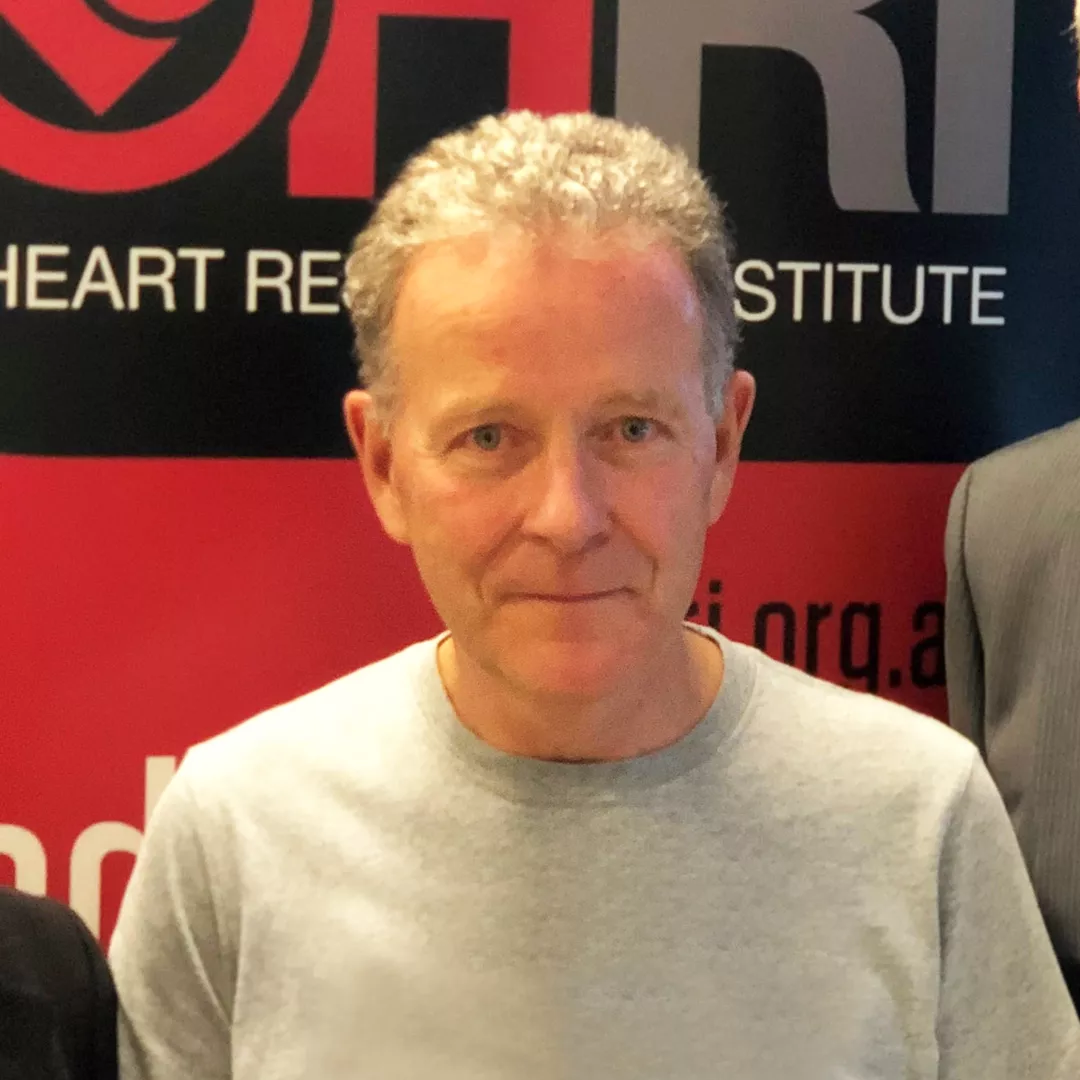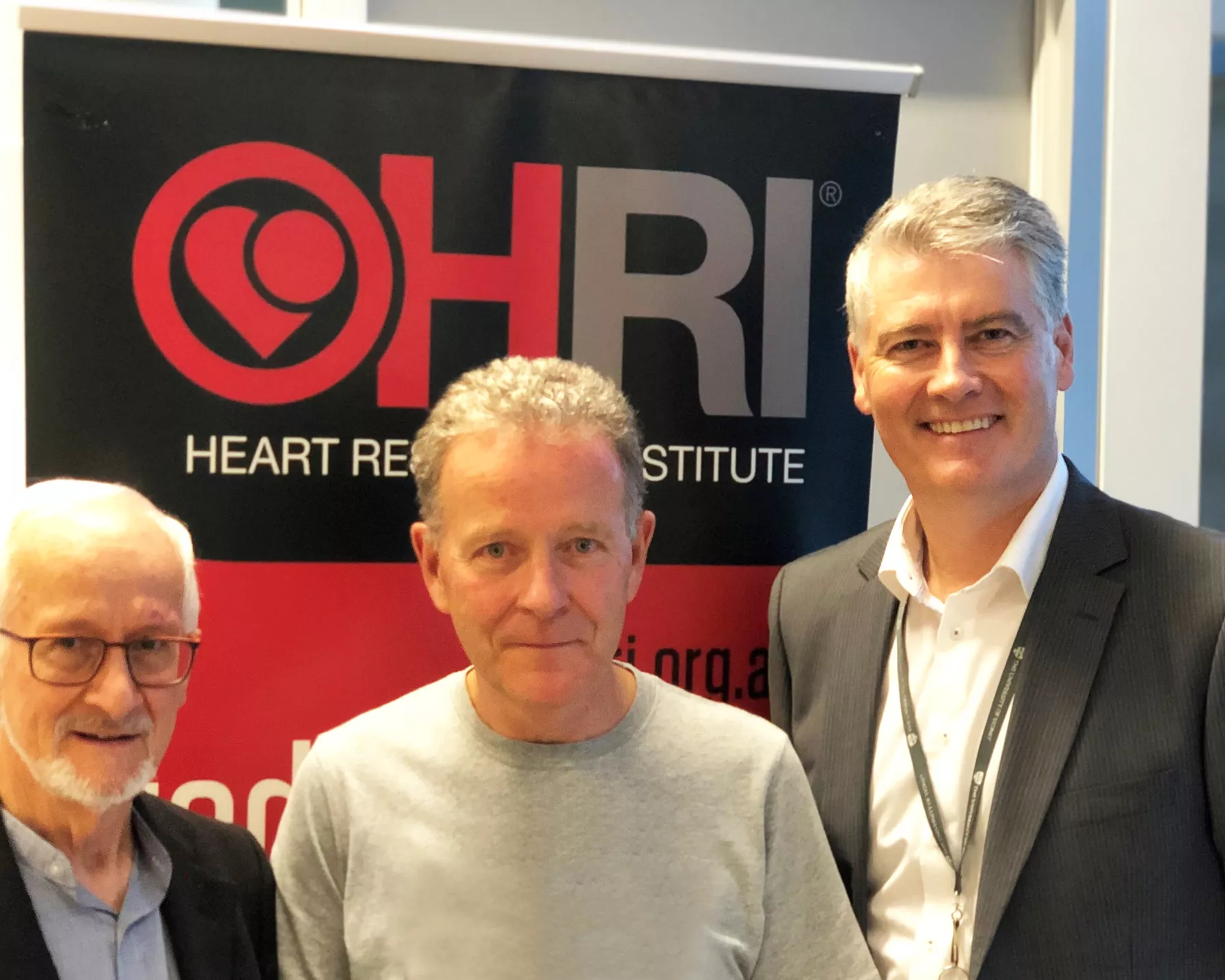Professor Willem Ouwehand, Professor of Experimental Haematology at the University of Cambridge and at the Sanger Institute speaks to Professor Ben Freedman, Deputy Director Research Strategy and Group Leader at HRI about the state of heart disease research in the UK and the potential for research collaborations.
Prof Freedman
Cardiovascular disease is still the UK’s – and the world’s – number one killer. In fact, every 3 minutes, someone in the UK dies from cardiovascular disease. Where do you see that interactions between the Heart Research Institute and the University of Cambridge could really take off and improve people’s health?
Prof Ouwehand
The areas in which we can collaborate to the benefit of people in general, and particularly those who have a risk for cardiovascular disease, are those where we complement each other so that together we are stronger than on our own. Two of these areas are genomics and data science.
We have come to realise that finding the differences in DNA that indicate a person is at higher risk for heart attack and stroke requires data from hundreds of thousands of individuals. Research using data from people of different backgrounds from across the UK and Australia will bring enormous diversity to this dataset. This is very important for the future of medical research because treatments and prevention of disease have often been based on observations in people of European ancestry. But that is no longer enough. To truly beat heart disease, it needs to be researched in all the major population groups of the world.
Prof Freedman
Research on the genetics of heart disease could lead to better ways of preventing heart disease by trying to predict who will get it, as well as how to personalise the treatment for that particular risk. Where do you see the potential for collaboration on this?
Prof Ouwehand
With regards to prevention of disease, we’re in a very fortunate position that Australia and the UK have very similar health care systems. This places us extremely well to show the world how we can better prevent ill health or how we can maintain health for longer.
We have already discovered many new potential targets that could be used to make better and safer drugs. But we need to understand in which cells those targets operate. Once you know which proteins to select, and then in which cell the protein has a role in contributing to disease, we have a better target. This is an area where population genomics and cell biology can come together. HRI has a strong record in cell biology, so this is where its strengths come into play to work on a particular target in the context of the particular cell.
Prof Freedman
As an experimental haematologist, you work on blood and blood cells. One of the main research groups at HRI focuses on platelets – the blood cells that cause clots which can lead to heart attack or stroke. In your opinion, why is this research so important for beating cardiovascular disease?
Prof Ouwehand
Enormous steps have been made in terms of reducing cardiovascular disease, and particularly heart attacks, in Western populations. This has been achieved by better prevention methods, but we should not forget that if someone has had a heart attack or is at risk of having a heart attack, that that particular individual might be prescribed one, two, or sometimes even three tablets to prevent blood clots. We are in a good position to work together to make the next class of drugs that would particularly be tailored to bring benefits to people who have a thrombotic stroke, because that is where the big medical need is at the moment.
Prof Freedman
That is certainly an area that HRI is interested in and I see that we could try to work together to do a study in the UK and Australia to treat stroke using the drug developed at HRI. But, using the genetics to understand the role of blood cells and the lining of the blood vessels which cause heart attack and stroke, could allow us to either prevent it or treat it better.
Prof Ouwehand
Yes, through a joint program that builds on existing strengths and combines the expertise that exists at HRI with that at Cambridge, we could gain new insights about which molecules we should target for better prevention and better treatment of cardiovascular disease. We could make that jump forward together.
Prof Freedman
Do you foresee a flow of scientists between Cambridge and HRI?
Prof Ouwehand
First and foremost, there needs to be a flow of data between research groups around the world. But I also have learned from experience that if people work together on projects, there needs to be trust – and trust is generally created by people meeting each other face-to-face. Therefore, I think it’s near essential that particularly the younger generation of scientists have an opportunity to meet or to work in each other’s laboratories for a period of time to build that partnership, that trust, so that they can work together more effectively.
Prof Freedman
Finally, how do you think money raised for heart research could be leveraged to best grow research, and to improve health?
Prof Ouwehand
Because cardiovascular disease is a global problem, many significant organisations around the world who fund cardiovascular research are looking to join forces. Recently, the Dutch Heart Foundation and the British Heart Foundation announced joint grants to fund research. We have also already established strong collaborations on an individual basis to become more strategic about bringing substantial additional funding to Australia-UK collaborative efforts. We will certainly look to this source of funding to bolster our collaborations in addition to philanthropy in both countries.
Professors Ben Freedman, Willem Ouwehand and Shaun Jackson


